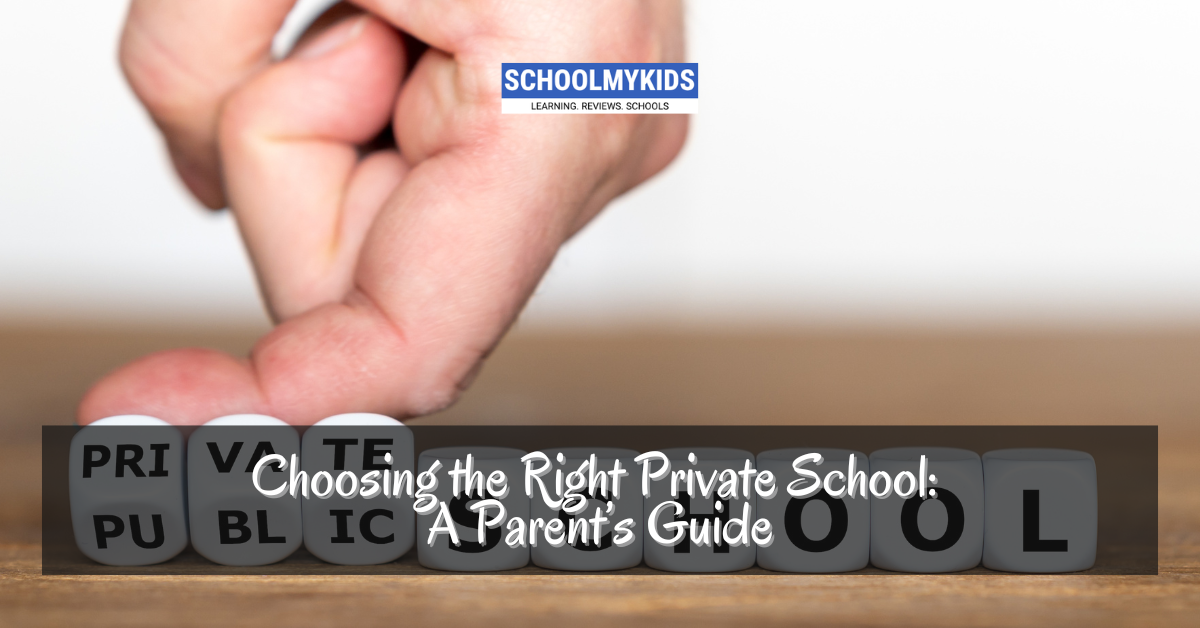Selecting the right private school for your child is a crucial decision that can significantly impact their educational experience and personal development. With various options available, it’s essential to consider multiple factors to ensure the best fit for your child’s needs and your family’s values. This guide explores key considerations and steps to help parents make informed choices.
Understanding Your Child’s Needs
- Academic Strengths and Interests: Begin by assessing your child’s academic strengths, interests, and learning style. Some schools specialize in specific subjects like science, arts, or languages, while others offer a more balanced curriculum.
- Social and Emotional Development: Consider your child’s personality and social needs. Some children thrive in large, diverse environments, while others may prefer smaller, close-knit communities that offer more personalized attention.
- Extracurricular Activities: If your child has interests in sports, arts, or other extracurricular activities, ensure the school offers programs that cater to these areas. A well-rounded education includes opportunities for personal growth outside the classroom.
Researching Schools
- School Philosophy and Values: Each school has its own educational philosophy, whether it’s traditional, progressive, Montessori, or religious. Understanding these values can help you determine if they align with your family’s beliefs and your child’s learning style.
- Curriculum and Teaching Methods: Investigate the school’s curriculum and teaching methods. Some schools prioritize rote learning and standardized testing, while others emphasize critical thinking, creativity, and hands-on learning.
- Accreditation and Reputation: Check if the school is accredited by reputable organizations. Accreditation ensures that the school meets specific educational standards. Additionally, seek out reviews and testimonials from current and former students and parents to gauge the school’s reputation.
Visiting Schools
- Campus Tours: Arrange visits to the schools you are considering. A campus tour provides insight into the school’s environment, facilities, and overall atmosphere. Pay attention to the cleanliness, safety, and resources available to students.
- Classroom Observations: If possible, observe classes in session. This can give you a sense of the teaching style, student engagement, and classroom dynamics. It’s also an opportunity to see how teachers interact with students and manage the classroom.
- Meet with Faculty and Staff: Meeting with teachers and administrators allows you to ask specific questions about the curriculum, discipline policies, and support services. It also helps you assess the staff’s enthusiasm and commitment to education.
Evaluating School Culture and Community
- Diversity and Inclusion: Consider the school’s commitment to diversity and inclusion. A diverse student body and faculty can enrich your child’s learning experience and prepare them for a multicultural world.
- Parent Involvement: Investigate the level of parent involvement encouraged by the school. Schools with active parent communities often foster strong partnerships between families and educators, enhancing the educational experience.
- School Policies: Review the school’s policies on homework, discipline, technology use, and other areas that are important to your family. Consistency between home and school values is crucial for your child’s development.
Financial Considerations
- Tuition and Fees: Understand the total cost of attendance, including tuition, fees, and additional expenses like uniforms, books, and extracurricular activities. Compare the costs of different schools and consider what fits within your budget.
- Financial Aid and Scholarships: Many private schools offer financial aid and scholarships to families who qualify. Inquire about the application process and eligibility criteria to determine if your family can benefit from financial assistance.
- Long-term Investment: Consider the long-term benefits of investing in private education. Evaluate how the school’s educational outcomes align with your child’s future goals, such as college admission rates or specialized programs.
Making the Decision
- Pros and Cons List: After gathering information, create a list of pros and cons for each school. Weigh the importance of each factor based on your child’s needs and your family’s values.
- Involve Your Child: Depending on their age, involve your child in the decision-making process. Their input is valuable, and feeling included can help ease any transition to a new school environment.
- Trust Your Instincts: Finally, trust your instincts. While data and facts are important, your intuition about the right fit for your child and family should also play a significant role in the decision.
Conclusion
Choosing the right private school involves careful consideration of various factors, from academic offerings to school culture. By thoroughly researching options, visiting campuses, and evaluating what matters most for your child’s development, you can make an informed decision that sets the foundation for their educational success and personal growth. Remember, the right school is one where your child will feel supported, challenged, and inspired to reach their full potential.









Be the first one to comment on this story.